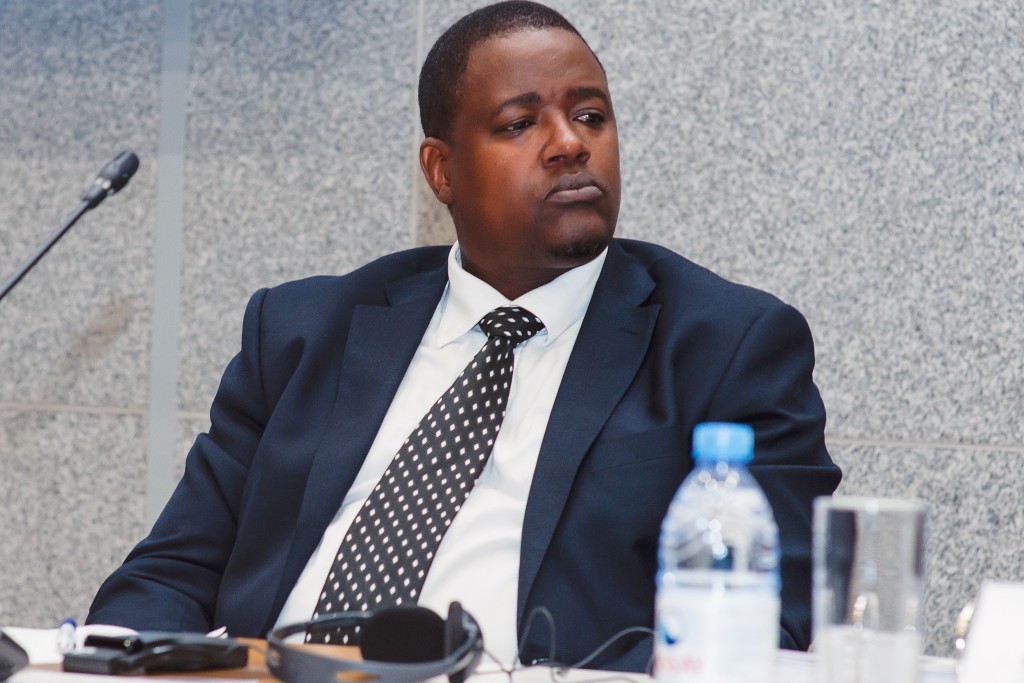ASTANA – By 2020, 70 percent of Kazakh schools will provide inclusive education. In an interview with The Astana Times, Nazarbayev University Graduate School of Education (NU GSE) Associate Professor Tsediso Michael Makoelle spoke about progress in this area.
“First, it is important to understand what inclusive education means. Inclusive education is a system of education that accommodates the needs of all children regardless of their disability, health, socio-economic status, gender or race. In general, it responds to whatever potential barrier to learning exists in the classroom,” he said.
Makoelle, who is NU GSE’s General Director for Research, holds PhDs from the University of Manchester, U.K., and University of South Africa. He is also the interim chair of the school’s inclusive education team, composed of six experts in policy and governance, pedagogy and curriculum, inclusive practices and learning barriers, minority education and diversity. The team aims to develop competitive inclusive education leaders for the nation’s education system.
Makoelle believes the main barrier to implementation is the way people perceive children’s special needs. A significant number are ashamed to have a child who is different and do not come to the fore. If people still believe children with disabilities cannot be educated in schools, there is no future for inclusive education. Still, awareness is growing and parents are beginning to realise they need to change those attitudes.
“In Kazakhstan, as in many other countries, understanding inclusive education is still centred on disability. Of course, this is how the concept started. However, later it moved further to incorporate other potential obstacles for effective learners. In some countries, inclusiveness was implemented a long time ago and there were numerous awareness and advocacy campaigns. I believe that it is a matter of time for Kazakhstan. I give presentations and hold workshops for teachers and officials from the Ministry of Education and notice that there is now a growing, clear understanding of what inclusive education actually is,” he noted.
Makoelle emphasised the team works with non-governmental organisations, such as the Dara Foundation, which were established to assist people with disabilities in receiving an education. The NGO works with schools to ensure equitable provision of education. The team also acts as a consultant to government bodies and he praised their initiatives.
“The Ministry of Education has set out a policy contained in the State Programme which makes it clear that by 2020, 70 percent of schools must create conditions for inclusive education. It has already been implemented in several pilot schools. For example, NU GSE supervises one such school,” he added.
Two types of training are required to execute the inclusive education system. Principals must be taught to develop structure and administration systems relevant to inclusive schools, since managing such schools differs from managing a homogenous school. In addition, teachers should be re-trained to develop subject methodology and pedagogy to accommodate the needs of all students.
“We also need to change the curriculum of future teachers who are studying in pedagogical institutes, so that when they get a degree and go to a school, they will be ready to assist various students in the classroom. Our team is involved in a 100 experts’ project and we continually train pre-service teachers in such institutes,” said Makoelle.
In addition to training, he noted the need for a suitable infrastructure, such as wheelchair ramps, signs for those with hearing impairments and special prompts for the blind. He noted the difficulty, since schools were not originally built to account for such needs and infrastructure provision touches on the availability of resources.
The inclusive education team has expanded, as two more experts have been hired at NU GSE to focus on inclusive education in kindergartens and higher education institutions.
“We have Master’s and PhD programmes at NU. Students in GSE have the opportunity to go abroad and observe the educational process. For example, PhD students have the opportunity to visit the University of Cambridge and the University of Pennsylvania. Recently, two students went to learn and share experience on inclusive education through the Americans with Disabilities Act (ADA) inclusive education programme by the federal government of the U.S. At the same time, a visitor came to Kazakhstan through the ADA programme. Currently, there are two cohorts of graduates who work in schools and promote inclusiveness,” he said.
While working at NU GSE, Makoelle published “Inclusive Pedagogy in Context: A South African Perspective.” The book, released in 2016, covers pedagogical methods, management systems, school development plans and recommendations for teachers, school managers and policy makers.
Makoelle intends to remain in Kazakhstan five more years and the inclusive education team plans to pay more attention to rural schools and identify how educational practices can be sustained.

